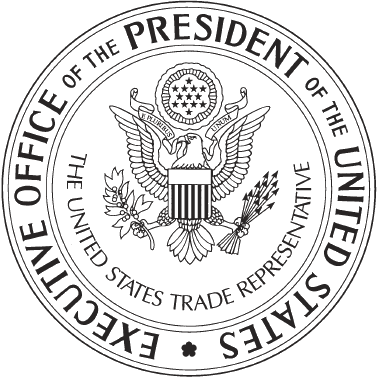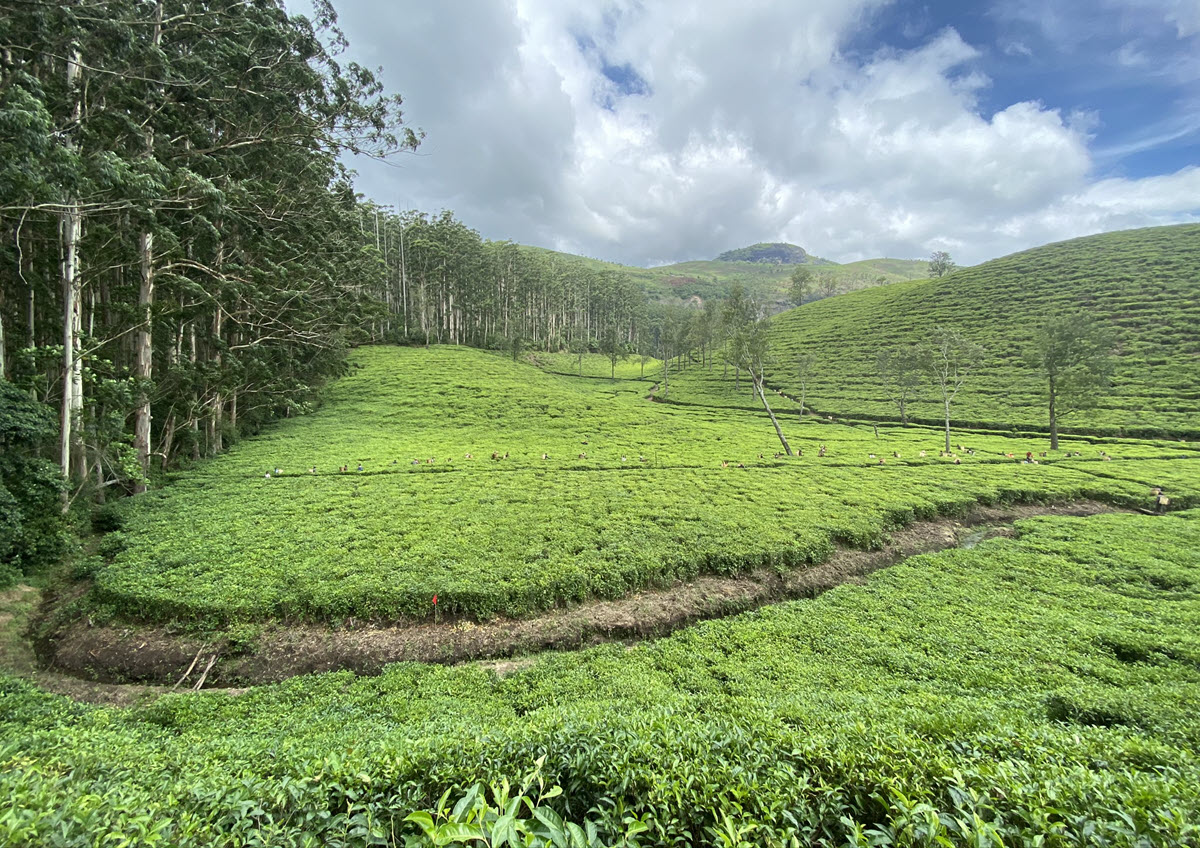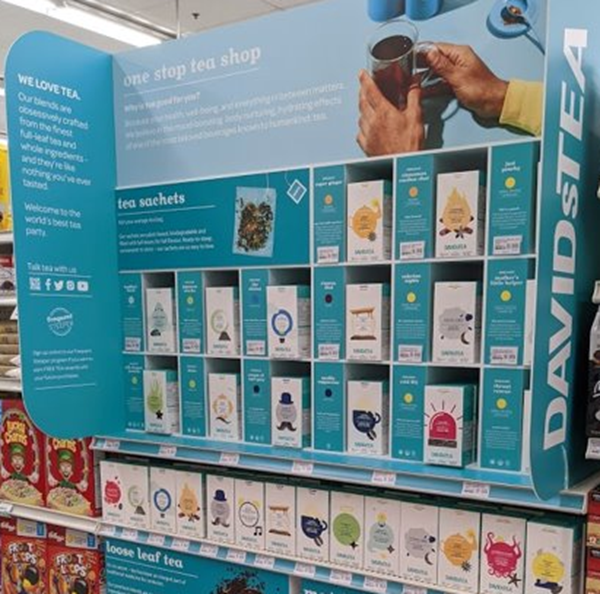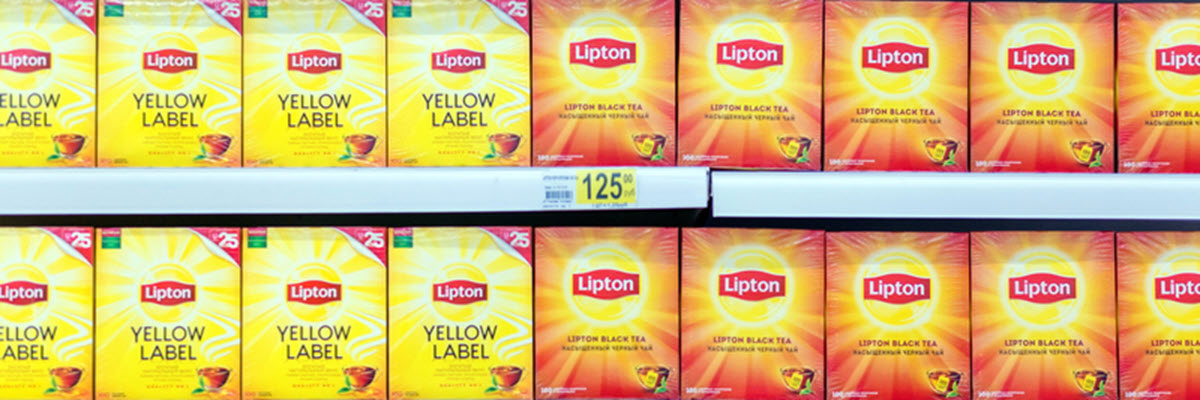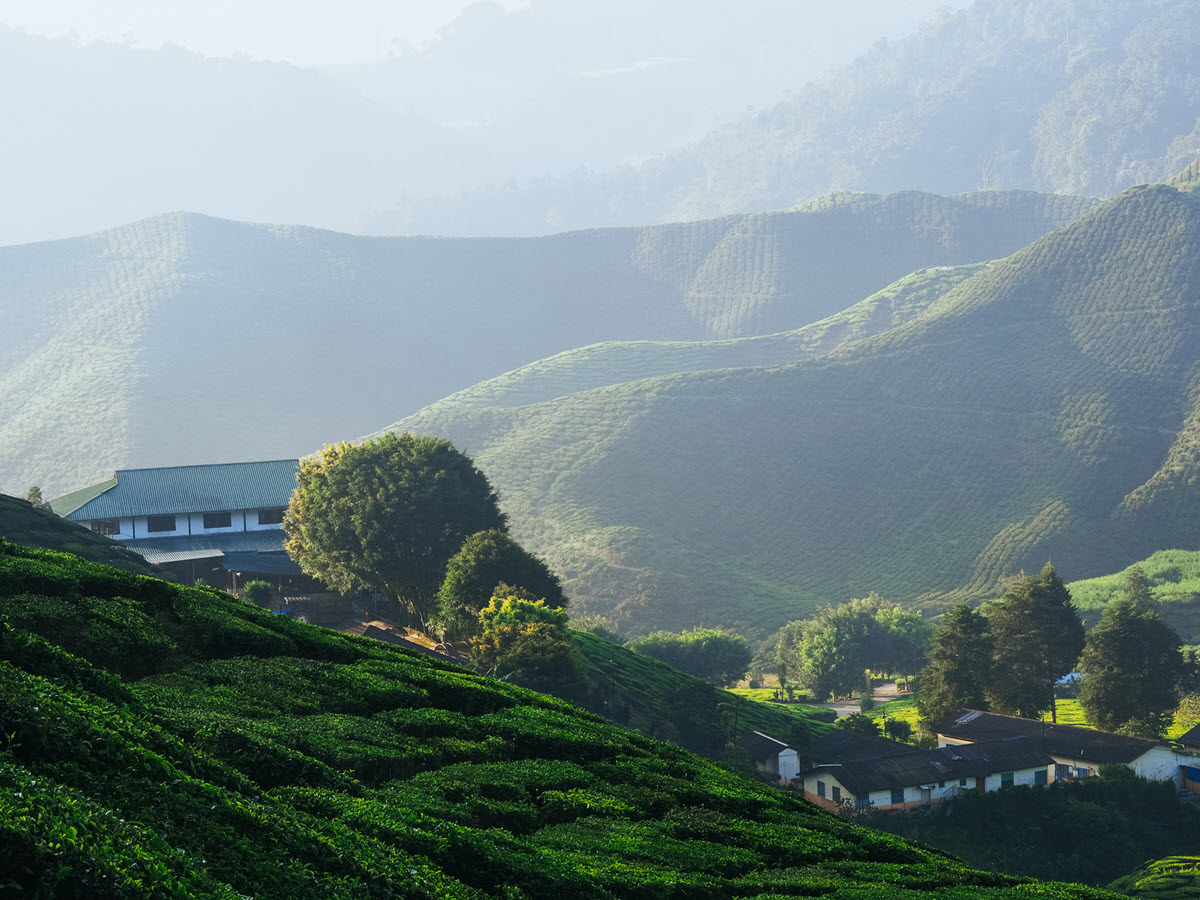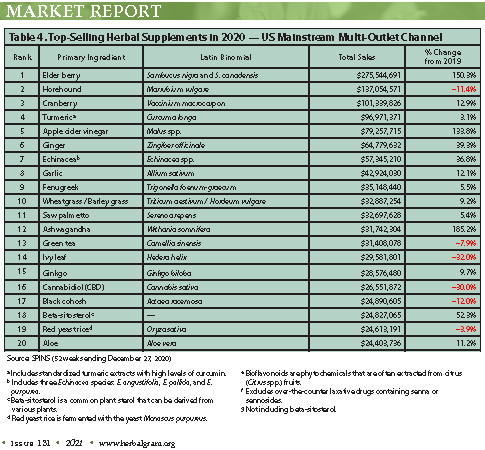Hear the Headlines
| Food Inflation and Tea
| Tea Cargo Woes Worsen
| COVID’s Impact on the North American Tea Market
India Tea Price Watch
All India quantities were higher in week 40 with South India experiencing the greater percentage of sales. Prices were lower across all categories with the sharpest decline in South India dust. The unsold quantity of 7,618 metric tons this week is worrying as larger quantities (estimated at more than 17 million kilos) are expected in north India in the next two weeks. Sales volumes were lower in Week 40 at the Siliguri Auction with buyers foregoing bids due to increased lot size. Learn more…
Features
This week Tea Biz visits London where Kyle Whittington reviews “Puer Tea, Ancient Caravans and Urban Chic” a meticulously researched cultural biography that reveals the intricacies of Pu’er.
… and then to Yunnan, China, where ancient tea forests mark the origin of Pu’er, a tea experiencing a popular resurgence due to the pandemic.

Review: Puer Tea, Ancient Caravans and Urban Chic
By Kyle Whittington | TeaBookClub
Sitting on the academic end of the tea bookshelf, this is a fascinating and thoroughly well researched foray into the complex and multi-faceted world of Pu’er tea. An anthropological study which explores the “cultural biography” of Puer tea, the ethnographic and anthropological research that has gone into this is book is exceptional and really opens the intricacies of Pu’er. And yet, despite being such an academic text it is entirely readable and utterly fascinating. Read the review…
Listen to the review
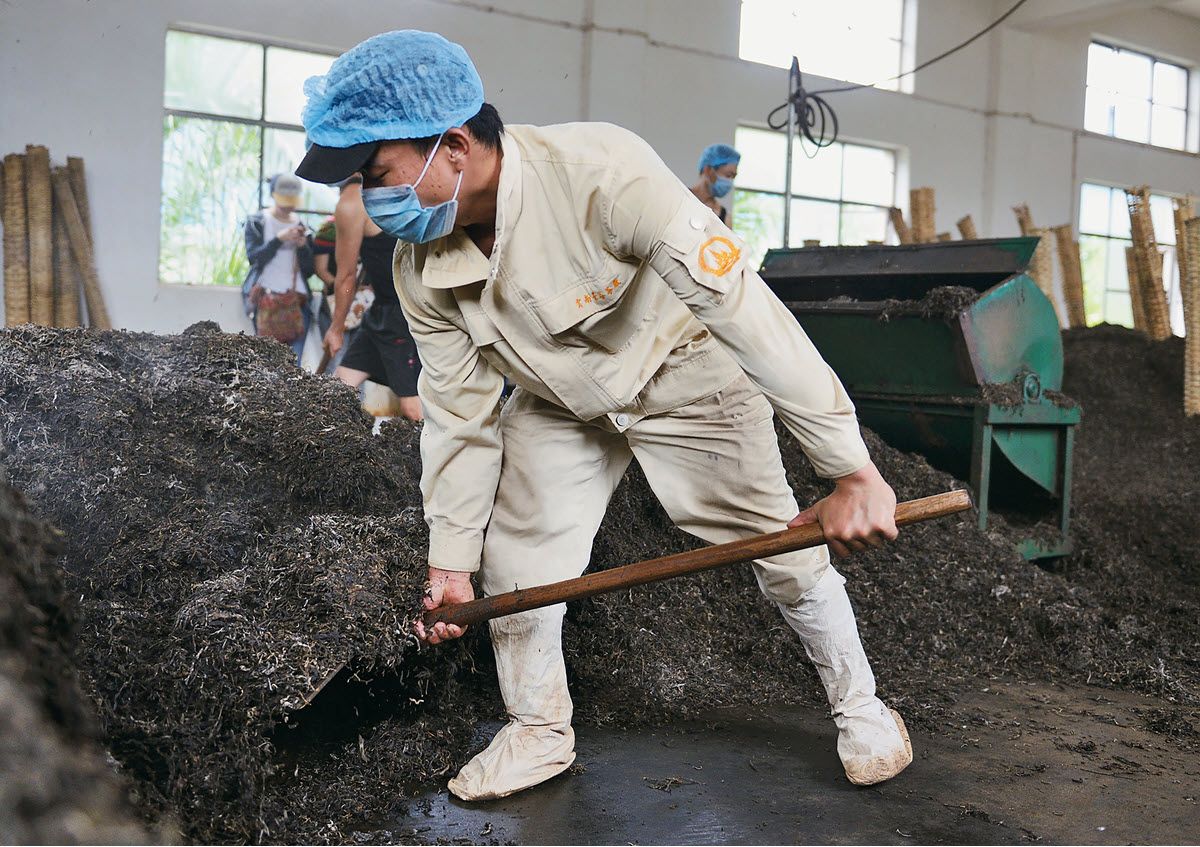
The Popularity of Puer
By Dan Bolton
The COVID outbreak in China triggered a surge in domestic sales of Pu’er along with teas blended with herbs associated with traditional Chinese medicine. In China tea is viewed as essential to maintain the body’s natural health balance and improve immunity.
Pu’er does not prevent infection by the novel coronavirus, but this fermented tea aids digestion, concentrates polyphenols, and contains statins that lower cholesterol, which is why it is often prescribed to improve heart health. Pu’er also contains a very diverse makeup of bacteria to support gut health, according to medical research cited in the magazine Well+Good.
China primarily grows green tea (accounting for 63.5% of production) but dark tea, a category that includes Pu’er, accounts for 13.5% of total production, far more than black (11%) wulong (9.9%) or white tea (1.3%).
Listen to the report
News

Food Inflation and Tea
By Dan Bolton
As raw materials, energy, and shipping costs rise across a broad swath of food and beverages, including coffee, where prices are up 17% in grocery, packaged tea has avoided a spike. The reason is basic supply and demand. Oversupply of commodity tea is depressing prices while COVID-related expenses drive the price of specialty teas higher. Food inflation is the big unknown. Is this a temporary spike, or are higher prices here to stay? In September, the US Labor Department reported prices increased 5.4%, the most significant jump in prices since January 1991. According to Bloomberg, global food prices are at a decade high, compounded by supply chain disruptions that have sent a United Nations index of food costs up by a third over the past year. Energy costs are rising, and the costs of bringing tea to market are soaring. Read more…

Tea Cargo Woes Worsen
By Dan Bolton
The cost of transporting a 40-foot container of tea from India to Europe or from Vietnam to Los Angeles is now equal to the value of tea it holds.
Freightos FBX reports shipping charges from East Asia to East Coast ports in North America peaked at $20,695 so far this month. Shippers from Asia to West Coast destinations paid an average $17,377 for a 40-foot TEU Oct. 15. The Shanghai Containerized Freight Index is up 464% to an average $4,614 cost per container.
The price of a container traveling from Kolkata to Rotterdam was $9,500 in October. Add the cost of securing COVID limited labor to load and a premium paid for ground transport, and costs easily approach $20,000.
Airfreight is the preferred method for transporting specialty tea. In normal times, using a parcel service adds about $6.50 to the cost of each pound of tea, about 40-cents per ounce. But in recent months, rates on some routes have doubled – and doubled again.
Rates to fly goods from Frankfurt to Hong Kong grew by 2.2 times in the past three months to record high of $3.53 per kilogram, according to the newly launched Freightos Air Index (FAI). Freightos monitors cargo volume for 30 major airlines on its WebCargo platform and tracks cargo prices for 2,000 freight forwarders totaling 40% of global air freight.
FedEx is raising rates by an average of 5.9%, UPS by 4.9%, and DHL Express announced it would increase its rates by 5.9% on Jan. 1. Retailers who typically offer “free shipping” are upping order minimums to $50 and $75, and many are charging $15 to $25 to ship packets that weigh less than 500 grams (one pound). During the pandemic airlines relied on freight to generate a third of revenue (up from 12% pre-pandemic).
Biz Insight – Danish logistics data researcher Sea-Intelligence reports that almost 13% of the world’s cargo shipping capacity is tied up by delays. Schedule reliability in August was at a record low of 33.6%, meaning two-thirds of shipped goods are arriving late, according to the company.
- Related: The Worsening Logistics Situation (STiR)
COVID’s Impact on the North American Tea Market
The initial pandemic-driven surge in tea sales has passed and the North American market has returned to a period of steady growth. The tea market will grow at a projected 3.1% through 2026, according to a report released this week by Research and Markets. Consumer research in the North American Tea Market 2021 report documents the impact of the pandemic and highlights these three trends.
- Healthy hydration is propelling market growth at the expense of fruit juices and carbonated drinks. The herbal tea segment is expected to experience “significant growth” over the coming years as COVID-19 paved the way for products “that are good for health, natural, and act as an immunity booster.” Organic certification was identified as a desirable product attribute.
- Second, the increase in settlement of expatriated populations in the US and especially in Canada is driving the North American market, according to the researchers.
- “The organoleptic versatility associated with tea makes it open to manufacturers to innovate alongside the healthy trends that have been resonating prominently in the North American market,” according to the report. ?
The US is the third-largest tea importer globally with consumption increasing across the infused beverage category (camellia sinensis + botanicals), according to the report. The major growth opportunities hinge on innovation in flavors and convenience, “and the popularity of high-end specialty tea,” writes Research and Markets.
— Dan Bolton
- Read more… links indicate the article continues. Learn more… links to additional information from reliable outside sources.
Upcoming Events
October 2021
Duyun Maojian International Forum for Tea Lovers | Dunyun, Guizhou, China |
6th Annual Conference for China Tea Import and Export Trade | Oct. 21-22
The co-located events showcase the production of Maojian green tea. China quarantine and travel restrictions apply. Website | Brochure (PDF)
Click to view more upcoming events.
Share this episode with your friends in tea.
Listen to Tea Biz on Apple Podcasts
https://teabiz.sounder.fm/episode/news-01212021Subscribe and receive Tea Biz weekly in your inbox.







